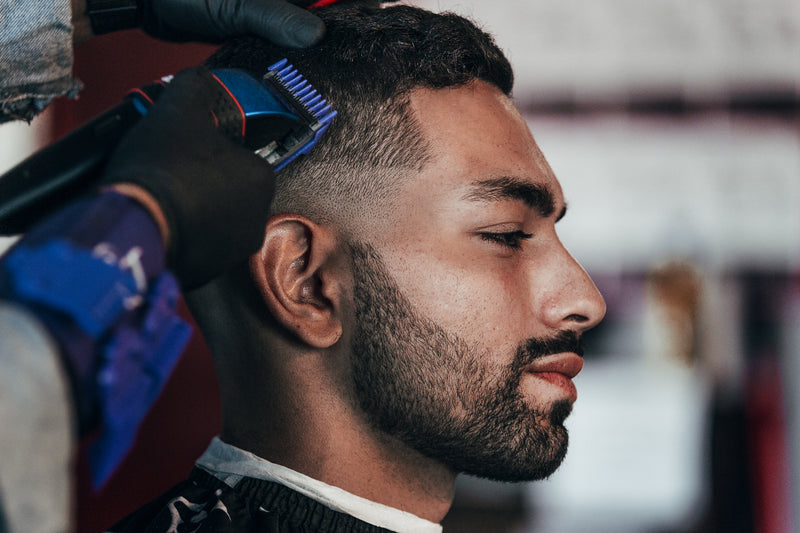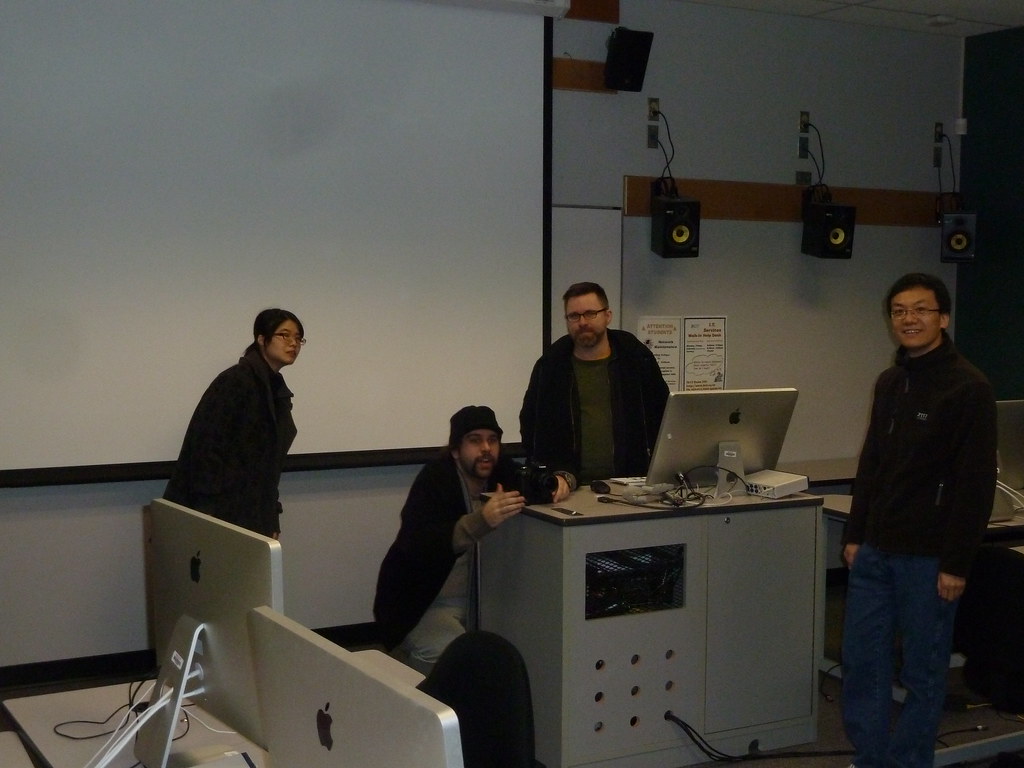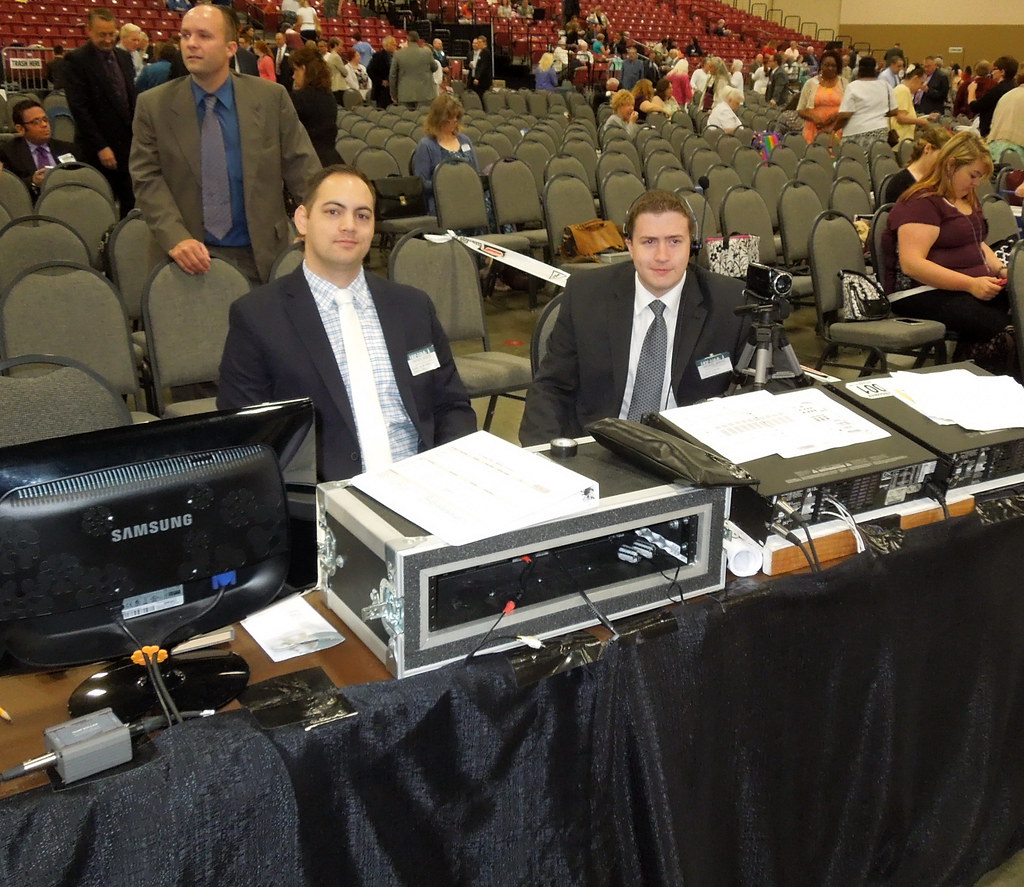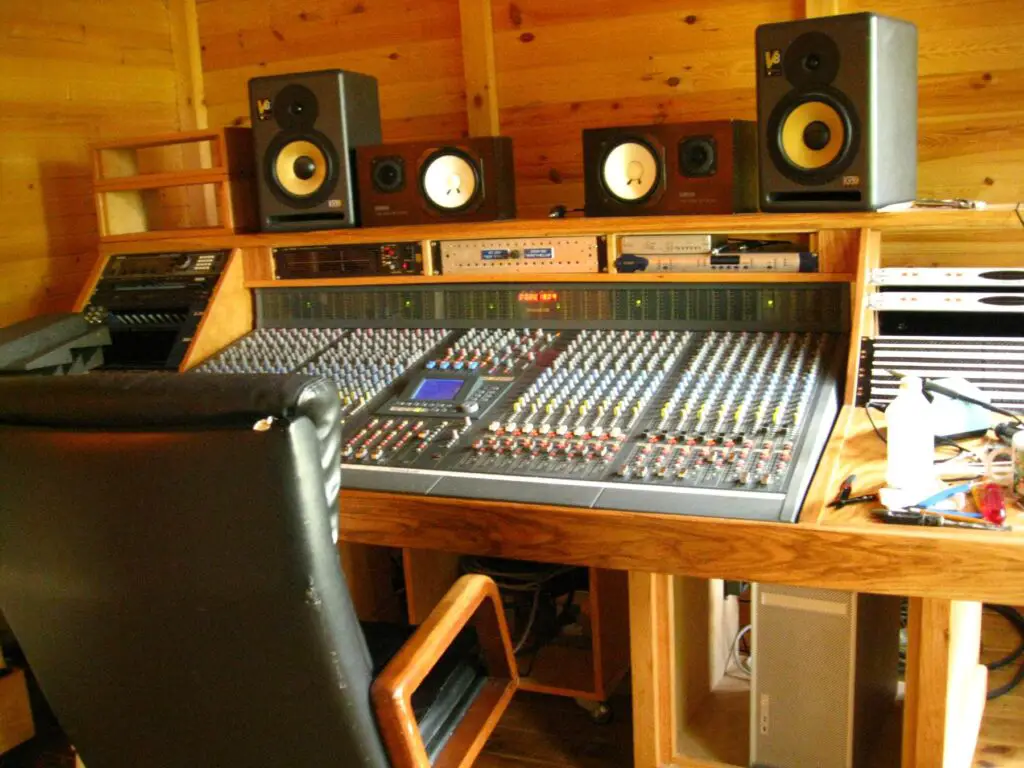Are you looking to turn your passion for music into a career? A music production university might be the perfect choice for you. In this comprehensive guide, we’ll explore everything you need to know about music production universities, including top programs, facilities, and job prospects. Whether you’re interested in a music production degree, audio engineering program, or music technology courses, we’ve got you covered. Read on to discover how a music production university can help you achieve your dreams in the music industry.
Table of Contents

Top Music Production Universities
If you’re looking to pursue a career in music production, attending a top music production university can provide you with the skills and knowledge you need to succeed. Here are some of the best music production universities in the United States:
- *Berklee College of Music* – Boston, MA
- *Full Sail University* – Winter Park, FL
- *University of Southern California* – Los Angeles, CA
- *New York University* – New York, NY
- *University of Miami* – Coral Gables, FL
Berklee College of Music
Berklee College of Music is a world-renowned music school that offers a variety of music production programs, including a Bachelor of Music in Music Production and Engineering, a Master of Music in Music Production, Technology, and Innovation, and a Professional Diploma in Music Production and Technology. The school has state-of-the-art facilities, including 12 recording studios, 3 mixing rooms, and 2 mastering suites, as well as a large collection of vintage and modern equipment.
Full Sail University
Full Sail University is a private, for-profit university that specializes in entertainment and media programs, including music production. The school offers a Bachelor of Science in Music Production, a Master of Science in Entertainment Business, and a Master of Fine Arts in Media Design. Full Sail has a 110+ studio complex, which includes recording studios, sound stages, and post-production facilities, as well as a large collection of industry-standard equipment.
University of Southern California
The University of Southern California (USC) is a private research university that offers a Bachelor of Music in Popular Music Performance and a Bachelor of Music in Music Industry. The school also has a Music Technology program that focuses on music production, audio engineering, and computer music. USC has several recording studios, including the USC Thornton Recording Studios, which feature state-of-the-art equipment and a large collection of vintage and modern microphones.
New York University
New York University (NYU) is a private research university that offers a Bachelor of Music in Music Technology, a Master of Music in Music Technology, and a Ph.D. in Music Technology. The school has several recording studios, including the James L. Dolan Music Recording Studio, which features a 48-channel SSL Duality console and a large collection of vintage and modern equipment.
University of Miami
The University of Miami is a private research university that offers a Bachelor of Music in Music Engineering Technology and a Master of Music in Music Engineering Technology. The school has several recording studios, including the Weeks Recording Studio, which features a 48-channel SSL Duality console and a large collection of vintage and modern equipment.
Attending one of these top music production universities can provide you with the education, resources, and networking opportunities you need to succeed in the music industry.

Curriculum and Faculty
Music production universities offer a comprehensive curriculum that covers various aspects of music production, including music theory, audio engineering, production techniques, and business skills. The faculty of these schools is composed of experienced professionals who have worked in the music industry and have a deep understanding of the field.
For instance, at Berklee College of Music, students take courses in music theory, ear training, music history, and production techniques, as well as business courses such as music marketing and entrepreneurship. The faculty includes Grammy-winning producers and engineers, as well as successful music industry executives.
Similarly, Full Sail University’s music production program includes courses in music theory, audio engineering, production techniques, and music business, as well as courses in video production, game design, and web development. The faculty includes experienced producers, engineers, and industry professionals who have worked with major artists and labels.
The University of Southern California’s Music Technology program offers courses in music production, audio engineering, computer music, and music business, as well as courses in music theory and history. The faculty includes experienced producers, engineers, and composers who have worked in the film, television, and video game industries.
New York University’s Music Technology program provides courses in music production, audio engineering, computer music, and music business, as well as courses in music theory and history. The faculty includes experienced producers, engineers, and composers who have worked with major artists and labels.
The University of Miami’s Music Engineering Technology program offers courses in music theory, audio engineering, production techniques, and music business, as well as courses in computer science and electrical engineering. The faculty includes experienced producers, engineers, and industry professionals who have worked with major artists and labels.
In addition to the courses and faculty, music production universities often provide students with opportunities to collaborate with other musicians and industry professionals, as well as access to state-of-the-art equipment and facilities. This hands-on experience is essential for students to develop the skills and knowledge they need to succeed in the music industry.

Facilities and Equipment
Music production universities offer students access to state-of-the-art facilities and equipment that allow them to learn and practice their skills in a professional environment. These facilities include recording studios, sound labs, and other resources that are essential for music production.
At Berklee College of Music, students have access to 12 recording studios, 3 mixing rooms, and 2 mastering suites, as well as a large collection of vintage and modern equipment, including microphones, preamps, compressors, and digital audio workstations. The facilities are designed to provide students with hands-on experience in music production and audio engineering.
Full Sail University boasts a 110+ studio complex, which includes recording studios, sound stages, and post-production facilities. The university also provides students with access to a large collection of industry-standard equipment, including microphones, preamps, compressors, and digital audio workstations. The facilities are designed to provide students with a real-world experience in music production and audio engineering.
The University of Southern California has several recording studios, including the USC Thornton Recording Studios, which feature state-of-the-art equipment and a large collection of vintage and modern microphones. The facilities are designed to provide students with a professional environment to learn and practice their skills in music production and audio engineering.
New York University has several recording studios, including the James L. Dolan Music Recording Studio, which features a 48-channel SSL Duality console and a large collection of vintage and modern equipment. The facilities are designed to provide students with a hands-on experience in music production and audio engineering.
The University of Miami has several recording studios, including the Weeks Recording Studio, which features a 48-channel SSL Duality console and a large collection of vintage and modern equipment. The facilities are designed to provide students with a professional environment to learn and practice their skills in music production and audio engineering.
Overall, the facilities and equipment available at music production universities are designed to provide students with a real-world experience in music production and audio engineering. These facilities are essential for students to develop their skills and prepare for a career in the music industry.

Admission Process and Tuition Fees
The admission process for music production universities can be competitive, and it’s important to understand the requirements and deadlines for each program. Here’s what you need to know:
Application Requirements
Most music production universities require the following application materials:
- Application form: Fill out the application form provided by the university, and make sure to provide accurate and up-to-date information.
- Transcripts: Submit official transcripts from all high schools and colleges attended. These transcripts should show your grades and academic achievements.
- Test scores: Some universities require standardized test scores, such as the SAT or ACT. Check with each university to see if these scores are required.
- Letters of recommendation: Ask teachers, counselors, or other professionals to write letters of recommendation on your behalf. These letters should highlight your academic achievements, work ethic, and character.
- Auditions or interviews: Some universities require auditions or interviews as part of the application process. These auditions or interviews may be in-person or virtual.
Deadlines
Make sure to check the application deadlines for each program you’re interested in. Deadlines can vary depending on the program and the university. Some programs have early decision or early action deadlines, while others have regular decision deadlines. Make sure to submit your application on time to avoid missing out on the opportunity to attend your preferred program.
Tuition Fees
Tuition fees for music production universities can be expensive, but there are financial aid options available. Here’s what you need to know:
- Private vs. public universities: Private universities are generally more expensive than public universities. However, private universities may offer more financial aid options, such as scholarships and grants.
- Undergraduate vs. graduate programs: Graduate programs are generally more expensive than undergraduate programs. However, graduate students may be eligible for more financial aid options, such as research assistantships or fellowships.
- Financial aid options: Financial aid options include scholarships, grants, and loans. Scholarships and grants do not need to be repaid, while loans do. Make sure to research all of your financial aid options and apply for as many as possible to reduce your out-of-pocket expenses.
By understanding the admission process and tuition fees for music production universities, you can make an informed decision about which program is right for you. Make sure to research each program thoroughly and apply early to increase your chances of acceptance.

Music Production Degree Programs
Music production universities offer a variety of degree programs, including bachelor’s and master’s degrees. Bachelor’s degrees typically take four years to complete and provide a broad foundation in music production, while master’s degrees take two years to complete and provide a more specialized education.
For example, Berklee College of Music offers a Bachelor of Music in Music Production and Engineering, a Master of Music in Music Production, Technology, and Innovation, and a Professional Diploma in Music Production and Technology. Full Sail University offers a Bachelor of Science in Music Production, a Master of Science in Entertainment Business, and a Master of Fine Arts in Media Design.
The University of Southern California offers a Bachelor of Music in Popular Music Performance and a Bachelor of Music in Music Industry, as well as a Music Technology program that leads to a Master of Science in Music Technology. New York University offers a Bachelor of Music in Music Technology, a Master of Music in Music Technology, and a Ph.D. in Music Technology.
In addition to these programs, many music production universities offer specialized degree programs in areas such as audio engineering, sound design, and music business. These programs provide students with the skills and knowledge they need to succeed in specific areas of the music industry.
When choosing a music production degree program, it’s important to consider factors such as the program’s curriculum, faculty, facilities, and alumni success stories. By doing your research and choosing the program that’s the best fit for you, you can set yourself up for a successful career in music production.

Audio Engineering Schools: Specialized Programs for Technical Expertise
Audio engineering schools offer specialized programs that focus specifically on the technical aspects of music production, including recording, mixing, and mastering. These programs are designed to provide students with the skills and knowledge they need to succeed as audio engineers in the music industry.
Some of the top audio engineering schools in the country include:
1. The Recording Connection – Los Angeles, CA
The Recording Connection is a unique audio engineering school that offers a mentorship-based program. Students are paired with a professional audio engineer who serves as their mentor throughout the program. This hands-on approach allows students to gain real-world experience and build valuable connections in the industry.
2. SAE Institute – New York, NY
SAE Institute is a global network of audio engineering schools that offers a variety of programs, including a Bachelor of Science in Audio Production. The program covers a wide range of topics, including sound design, music business, and post-production.
3. CRAS – Gilbert, AZ
CRAS (Conservatory of Recording Arts and Sciences) is a highly respected audio engineering school that offers a comprehensive program in audio engineering and music production. The program covers topics such as music theory, sound design, and live sound reinforcement.
4. The Blackbird Academy – Nashville, TN
The Blackbird Academy is a music production school located in Nashville, TN. The school offers a variety of programs, including a 12-month audio engineering program. The program covers topics such as recording techniques, mixing, and mastering.
5. Omega Studios – Rockville, MD
Omega Studios is a music production and audio engineering school located in Rockville, MD. The school offers a variety of programs, including a 48-week audio engineering program. The program covers topics such as music theory, sound design, and post-production.
Overall, audio engineering schools offer specialized programs that provide students with the technical expertise they need to succeed as audio engineers in the music industry. If you’re interested in pursuing a career in audio engineering, one of these schools may be the perfect fit for you.

Music Technology Programs
Music technology programs are designed to teach students about the intersection of music and technology, including computer music, electronic music, and music software development. These programs are more specialized than music production universities and may be a better fit for students who are interested in pursuing a career in music technology.
Some of the top music technology programs in the country include:
1. Georgia Tech Center for Music Technology – Atlanta, GA
The Georgia Tech Center for Music Technology offers a variety of programs in music technology, including a Bachelor of Science in Music Technology, a Master of Science in Music Technology, and a Ph.D. in Music Technology. The program focuses on the development of new technologies for music creation, performance, and education.
2. Stanford Center for Computer Research in Music and Acoustics – Stanford, CA
The Stanford Center for Computer Research in Music and Acoustics (CCRMA) offers a Master of Arts in Music, Science, and Technology, as well as a Ph.D. in Computer-Based Music Theory and Acoustics. The program focuses on the intersection of music, science, and technology, and provides students with hands-on experience in music production and software development.
3. MIT Media Lab – Cambridge, MA
The MIT Media Lab offers a variety of programs in music technology, including a Master of Science in Media Arts and Sciences with a concentration in music technology. The program focuses on the development of new technologies for music creation, performance, and education, and provides students with access to state-of-the-art facilities and equipment.
4. University of California, San Diego Music Department – San Diego, CA
The University of California, San Diego Music Department offers a Bachelor of Arts in Music with a specialization in Music Technology and a Master of Arts in Music with a specialization in Music Technology. The program focuses on the use of technology in music composition, performance, and production, and provides students with access to cutting-edge equipment and facilities.
5. University of Illinois at Urbana-Champaign School of Music – Urbana, IL
The University of Illinois at Urbana-Champaign School of Music offers a Bachelor of Music in Music Technology, as well as a Master of Music in Music Technology. The program focuses on the use of technology in music composition, performance, and production, and provides students with access to state-of-the-art facilities and equipment.
Overall, music technology programs provide students with a unique set of skills and knowledge that can be applied to a variety of careers in the music industry. Graduates of these programs are prepared for careers as music software developers, sound designers, and music producers, among others.

Recording Arts Colleges
Recording arts colleges are specialized institutions that focus on the technical aspects of music production, including recording, mixing, and mastering, as well as the business aspects of the music industry. These schools offer programs that are more specialized than music production universities and may be a better fit for students who are interested in pursuing a career as a recording engineer or producer.
Some of the top recording arts colleges in the country include:
1. The Los Angeles Recording School – Los Angeles, CA
The Los Angeles Recording School is a well-known recording arts college located in the heart of the entertainment industry. The school offers a variety of programs, including a Bachelor of Science in Audio Production and a Certificate in Music Production. Students have access to state-of-the-art equipment and facilities, including recording studios, sound labs, and editing suites.
2. The Institute of Production and Recording – Minneapolis, MN
The Institute of Production and Recording is a recording arts college located in Minneapolis, MN. The school offers a variety of programs, including a Bachelor of Science in Audio Production and a Diploma in Music and Entertainment Business. Students have access to industry-standard equipment and facilities, including recording studios, sound labs, and post-production suites.
3. The Art Institute of Seattle – Seattle, WA
The Art Institute of Seattle is a well-known recording arts college located in Seattle, WA. The school offers a variety of programs, including a Bachelor of Science in Audio Production and a Diploma in Music and Video Production. Students have access to state-of-the-art equipment and facilities, including recording studios, sound labs, and post-production suites.
4. The Conservatory of Recording Arts and Sciences – Tempe, AZ
The Conservatory of Recording Arts and Sciences is a recording arts college located in Tempe, AZ. The school offers a variety of programs, including a Master Recording Program and a Music Production and Audio Engineering Program. Students have access to industry-standard equipment and facilities, including recording studios, sound labs, and post-production suites.
5. The New England Institute of Art – Brookline, MA
The New England Institute of Art is a recording arts college located in Brookline, MA. The school offers a variety of programs, including a Bachelor of Science in Audio and Media Technology and a Certificate in Audio Production. Students have access to state-of-the-art equipment and facilities, including recording studios, sound labs, and post-production suites.
These recording arts colleges provide students with the skills and knowledge they need to succeed in the music industry as recording engineers or producers. Graduates of these programs are prepared for careers in recording studios, post-production houses, and other music production facilities.
Student Reviews and Rankings
The opinions of current and former students of music production universities can provide valuable insights into the quality of education, faculty, and resources. Here are some reviews and rankings of the top music production universities in the country:
Berklee College of Music
Ranked #1 by The Hollywood Reporter and #2 by Billboard for music business programs, Berklee College of Music is a highly respected institution. Students praise the quality of education, faculty, and facilities, as well as the networking opportunities. One student said, “Berklee has given me the tools and connections I need to succeed in the music industry.”
Full Sail University
Ranked #1 by The Princeton Review for music production programs, Full Sail University is known for its hands-on approach to education. Students praise the quality of equipment and facilities, as well as the opportunities to work on real-world projects. One student said, “Full Sail has given me the skills and experience I need to start my career in music production.”
University of Southern California
Ranked #1 by The Hollywood Reporter for music programs, the University of Southern California is a top choice for aspiring music producers. Students praise the quality of education, faculty, and resources, as well as the location in Los Angeles. One student said, “USC has provided me with the knowledge and connections I need to succeed in the music industry.”
New York University
Ranked #2 by The Hollywood Reporter for music programs, New York University is located in the heart of New York City. Students praise the quality of education, faculty, and facilities, as well as the opportunities to network with industry professionals. One student said, “NYU has given me the skills and confidence I need to pursue my passion for music production.”
University of Miami
Ranked #3 by The Hollywood Reporter for music programs, the University of Miami is known for its high-quality education and facilities. Students praise the faculty and resources, as well as the location in Miami. One student said, “The University of Miami has provided me with the tools and support I need to achieve my goals in the music industry.”

Job Prospects and Salaries
Graduates of music production universities can pursue a variety of careers in the music industry, including music producer, recording engineer, mixing engineer, mastering engineer, and music business executive. The job prospects and salaries for these careers vary depending on the location, the type of employer, and the level of experience.
According to the Bureau of Labor Statistics, the median annual wage for music directors and composers was $51,670 in May 2020. The median annual wage for sound engineering technicians was $53,330 in May 2020. However, it’s important to note that salaries can vary widely depending on the specific job and the level of experience.
In addition to salaries, job prospects for music production graduates can also vary depending on the location and the type of employer. For example, graduates who are willing to relocate to major music hubs such as Los Angeles, Nashville, or New York City may have more job opportunities than those who stay in smaller cities or towns.
It’s also important to note that the music industry can be highly competitive, and graduates may need to work their way up from entry-level positions in order to advance in their careers. However, with hard work, dedication, and a strong portfolio of work, graduates of music production universities can find success in the music industry.
Conclusion
In conclusion, attending a music production university is a great way to turn your passion for music into a successful career. These universities offer comprehensive programs, state-of-the-art facilities, and access to industry professionals that can help you develop the skills and knowledge you need to succeed in the music industry. Whether you’re interested in music production, audio engineering, or music technology, there’s a program out there that’s right for you.
If you’re interested in learning more about music production and the music industry, be sure to check out our other content. We offer a wide range of articles, guides, and resources that can help you take your music career to the next level.
As an experienced music producer and home recording enthusiast for over a decade, I have a deep understanding of the challenges faced by musicians when it comes to finding the best budget PC for music production. Throughout my career, I have worked with various software and hardware setups, experimenting with different PC configurations to optimize my workflow and achieve professional-quality results. My extensive knowledge in this field has been further enhanced by my academic background in computer science, where I conducted research on the impact of processor speed on audio rendering and the benefits of SSD storage in reducing latency during music production. Additionally, I have closely followed industry trends and consulted with experts in the field to ensure that the recommendations provided in this guide are based on the latest advancements and reliable data. By combining my practical experience, academic insights, and research-backed information, I aim to provide musicians and aspiring producers with a comprehensive guide that will empower them to make informed decisions and elevate their music production endeavors.


